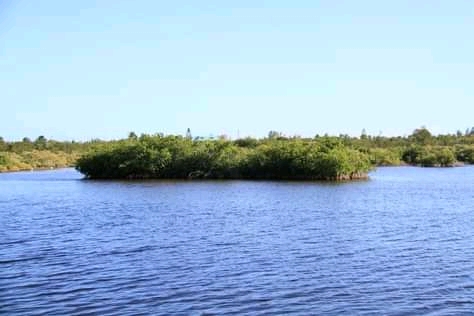By: Jemimah Chungu
Before the outbreak of the coronavirus pandemic, the world population was estimated at 7.1 billion, a number which seemingly was a threat to natural resources. The world’s available natural resources cannot carter for this population given the prevailing global economic decline. Let alone, the quality of natural resources have been demolished by anthropogenic activities such as; over-fishing and non-ecofriendly fishing methods including pollution from transportation and oil spills. Additionally, Covid-19 has had a negative impact on the economic affecting governments and individuals. Regardless, the world should not play down environmental conservation. i
Generally, all natural resources are supported by water, air and land in the presence of sunlight. This forms the basis for a blue economy concept. This focuses on water resources and environment surrounding them. Water covers about 71% of the globe’s surface.
Furthermore, the worldwide ocean economy is valued at around US$1.5 trillion per year. Eighty per-cent of global trade by volume is carried by sea and 350 million jobs world-wide are linked to fisheries. Additionally, aquaculture is the fastest growing food sector and provides about 50% of fish for human consumption (Commonwealth).
Therefore, the blue economy can help redeem both the economic status from individual to global levels at the same time natural resources of the world. The blue economy seeks to promote economic growth, social inclusion and the preservation or improvement of livelihoods while at the same time ensuring environmental sustainability for the oceans and coastal areas (World Bank Group). However, the concept is applied to all areas with water bodies (both salt and fresh water example; oceans and rivers).
The term globe in this context is referring to the whole planet earth of which the planet is the habitat (home) and whole environment of people. In other words, the globe/ earth is the environment for people and every other organism called global environment.
FOSTERING A BLUE ECONOMY CONCEPT IN COASTAL AREAS
The ‘Blue Economy’ concept encourage better stewardship of our oceans or ‘blue’ resources. It highlights the close linkages between the oceans, climate change, and the well-being of the people at the same time supporting all of the United Nations’ Sustainable Development Goals (SDGs), especially SDG14 ‘life below water.’ It also recognizes that this will require ambitious, coordinated actions to sustainably manage, protect and preserve our oceans now, for the sake of present and future generations.
The blue economy endorses an opportunity for boosting their economic growth and to tackle unemployment, food security and poverty. However, the Blue economy goes beyond viewing the ocean economy only as a mechanism for economic growth. In the ‘business-as-usual’ model, large-scale industrial nations have seen the development of their ocean economies through the exploitation of maritime and marine resources for example through shipping, commercial fishing, and the oil, gas, minerals and mining industries often without a view to the effects their activities have on the future health or productivity of those same resources (Commonwealth).
The blue economy calls for actions that realm the environment in the process of benefiting from the environment. Activities such as bad fishing methods for example using a mosquito net or poisons reduce the quantity and quality of fish and henceforth calls for friendly means such as the use of traditional spears and baits.
Oceans are commonly affected by pollution from transportation such as shipping, oils, refuse, waste and so on. A blue economy calls for a pollution free environment of water by clean-up activities. It also campaigns for reduction of noise pollution and clean energies such as bio energy, wind energy and solar energy considering coastal areas are often windy, sunny and woody to avoid waste. These entail environmentally friendly development. Seychelles is an example of a place that has planned a blue economy concept Road-map (2018- 2022) aligns with mechanisms to ensure the blue economy in the coastal state.
FOSTERING A BLUE ECONOMY CONCEPT IN LAND LOCKED COUNTRIES
The blue economy is not just about market opportunities; it also provides for the protection and development of more intangible ‘blue’ resources such as traditional ways of life, carbon sequestration, and coastal resilience to help vulnerable states mitigate the often devastating effects of climate change (Commonwealth).
Traditional ways of life, carbon sequestration, climate change and generally environmental degradation happens even in areas around water bodies that are not coastal areas in landlocked countries. At the time even landlocked countries also need to benefit from the water sources with employment and economic growth at large with consideration of pollution reduction, good fishing energies, noise reduction and clean energies and others. Besides covid-19 has affected the whole globe and a reliable way to redeem the global economy is through all aquatic bodies and henceforth the blue economy concept has to be endorsed.
GO GREEN BY GOING BLUE.


